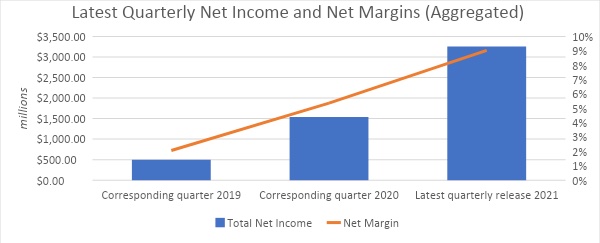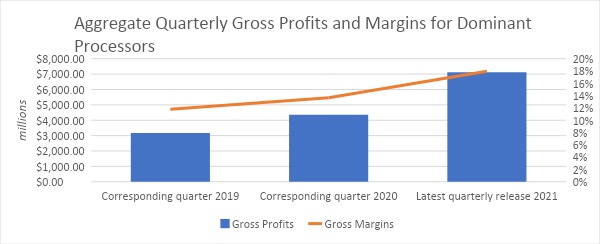Honesty and suffering Wyoming.
I should note here that I'm cynical about politicians and politics once a person leaves the local realm.
Now, I don't feel that way about politicians at the local level. The ones I've known personally were genuinely engaged and had entered into politics as they had real concerns about their communities, or schools, etc.
And, of the few state legislators I've known, most fit that same description.
Theodore Roosevelt, long before he ever ran for the Oval Office, once rebuked a reporter for suggesting that he might some day occupy it. In doing so, he stated that a person must never tell a politician, which he already was, being in the New York Assembly, that he might some day be President as he'd quit being his natural self and alter positions so that he could obtain that goal.
There's really something to that.
Harriet Hageman is in the category of politicians I've met and sort of once somewhat knew.
During the recent race, I was frankly shocked by a lot of her conduct, which I at first attributed to her simply wanting to be in Congress. Since that time, I've come to wonder if in fact she may believe the positions she's taking, in which case that's scarier yet. That would likely mean that of our three person Congressional delegation, she's the only true ideologue, and not in a good way.
Back in April, Harriet Hageman spoke in Powell and made this statement:
I’ve really got a dog in this hunt, I’m from Wyoming. My family’s from Wyoming … Wyoming is my passion. The way that I put it is that when Wyoming prospers, my family prospers. But when Wyoming suffers, my family suffers.1
That's the very first thing I've seen attributed to Hageman which would give a person a reason to vote for her. That same reasoning applied to the primary candidates who ran against Cheney when she first ran, and won, which of course means that a lot of the people who might find this view appealing now, apparently weren't all that worked up about it back when, including Hageman who at one time supported Cheney. None of which means that it isn't a good point.
Mind you, there are a lot of reasons not to have voted for Hageman, although most Wyoming voters who participated in the off year election did. The big reason for that is that most Wyoming voters bought the Trump lie that didn't sell nationwide this election, that the election was stolen.
Wyoming's voters, frankly, have been buying a lot of cheap fibs and obfuscations in recent years, so perhaps we shouldn't be too surprised.
So we should hope that Hageman really means what she says, and that she remains capable, as an attorney should be, of analyzing the facts. Given her age and status, she won't be personally culpable for failing to do so. I.e, if what she has been selling turns out to be a bill of goods, well she'll go on to retire and not bear the brunt of it.
Hageman says she has a dog in the "hunt" as she's from here and her family is too. And she is from the Ft. Laramie region and her family is here, in agriculture, although unlike those of us who have kids who to worry about for the future decades hence, she has no children, so that's really worrying about her extended family. I have no reason to believe that she doesn't genually bear them in her heart.
In any event, however, worrying about what happens when Wyoming suffers means, more than anything else, looking at the world honestly, and not at some romanticized past that never existed and which, to the extent it did, is evolving.
In 1960 Harold Macmillan, the Prime Minister of the United Kingdom, addressed the reality of the state of British colonialism to the South African parliament, stating:
The wind of change is blowing through this continent and, whether we like it or not, this growth of national consciousness is a political fact. We must all accept it as a fact, and our national policies must take account of it.
Macmillan was right, and there was no holding back the change those winds brought. But he had a concern beyond that, and stated:
As I see it, the great issue in this second half of the twentieth century is whether the uncommitted peoples of Asia and Africa will swing to the East or to the West. Will they be drawn into the Communist camp? Or will the great experiments of self-government that are now being made in Asia and Africa, especially within the Commonwealth, prove so successful, and by their example so compelling, that the balance will come down in favour of freedom and order and justice?
Not everyone was willing to accept the storm that had arrived. Ian Smith, the Prime Minister of Rhodesia, did not, and took his country out of the British Empire.
Rhodesia no longer exists. Zimbabwe, a wreck of a country, exists in its place. Many of the departing African colonies have had terrible post-colonial histories, but Zimbabwe has one of the worst. It's story is complicated, but in part that disaster can be put at Smith's feet. MacMillan proved correct, Smith's actions gave strength to Marxist revolutionaries, who won, and who effectively destroyed the country's economy.
Elections have consequences, as they say, and so does ignoring reality. Wyoming has a lot of going for it, but it doesn't control every trend in the United States or globe. Every time somebody says "electric cars will never work here", they cast a vote for fantasy. That's a minor example, but it's a relevant one. Harriet Hageman claimed, back in April when she gave her speech in Powell, that her first act in Congress would be to introduce a bill requiring the United States to use American energy.
Well fine, pass that bill (it won't pass), but what she means is almost certainly petroleum oil and coal. California, with a population dwarfing ours, is already legislatively phasing out the use of petroleum. Congress isn't going to be able to mandate a change in course that's already been taken, and not just here, but all over the globe and in the hearts of minds of consumers.
Wyoming has a lot going for it economically, and a lot of that predates its oil and coal history. But will it value it, or will it insist that we return to the 1980s and expect others to go along? I fear the latter is almost certain.
In addition to that, when Hageman claimed nativist grounds for people to vote for her, she ironically pointed out something that's very much impacted our recent political history. Yes, Cheney was not from Wyoming but John Barrasso isn't either. Foster Freiss, whom the far right here adored, very much was not.
Nor are a host of Wyoming political figures, some of whom are angry relocates from points further east.
The point isn't that you have to be born here to win elections or to run, but rather this. We should be very careful about taking our political views from out of state imports, whose presence is usually temporary. In recent years, particularly in the COVID era, we've received a lot of new people, but the backstory is a lot of them leave pretty quickly. The myth of Wyoming is that "everyone is so friendly", which isn't really true. It's easy to mistake politeness and curiosity for friendly.
Wyoming is a hard place to live and work. A lot of people flood in when the price of oil is high, and then hang for a while when it drops until they chase the dollar somewhere else. A lot of those people bring their views, often from the west of the Missippii, south of the Picket Wire region, and that temporarily impacts views here. Freiss, when he ran for office, had a campaign style that somewhat resembled something out of 1970s Alabama, for example. When they leave, that view usually goes with them.
Likewise, Wyoming throughout its history has had influxes of outsiders, people born well outside the region, who prove to be temporary. Nice summers are attractive at first, but long winters, no services, and the howling wind take their toll after a few years, and they move on. Something like 50% of people who move here just to move here move on in less than a year.
At the end of the day, Wyomingites, those born here who stayed, and those who moved here, mostly from neighboring states that have a lot of the same character, are invested in the state in ways that others aren't and want its character preserved. That means its entire character. You can't be the Congressman from the Oil Industry, or the House member from Coal, or the Representative from farmers in Ft. Laramie. It's the whole smash, and those who have lived and endured here, rather than those taking up temporary residence of a fictional Wyoming that exists only on Yellowstone or Longmire, do have opinions that matter more than those moving through.
That means being honest. Honesty starts with being honest to yourself first, and then to everyone else. It's a character trait that's really departed from national politics to a massive degree in recent years.
So, don't make Wyoming suffer, starts with being honest.
Footnotes








